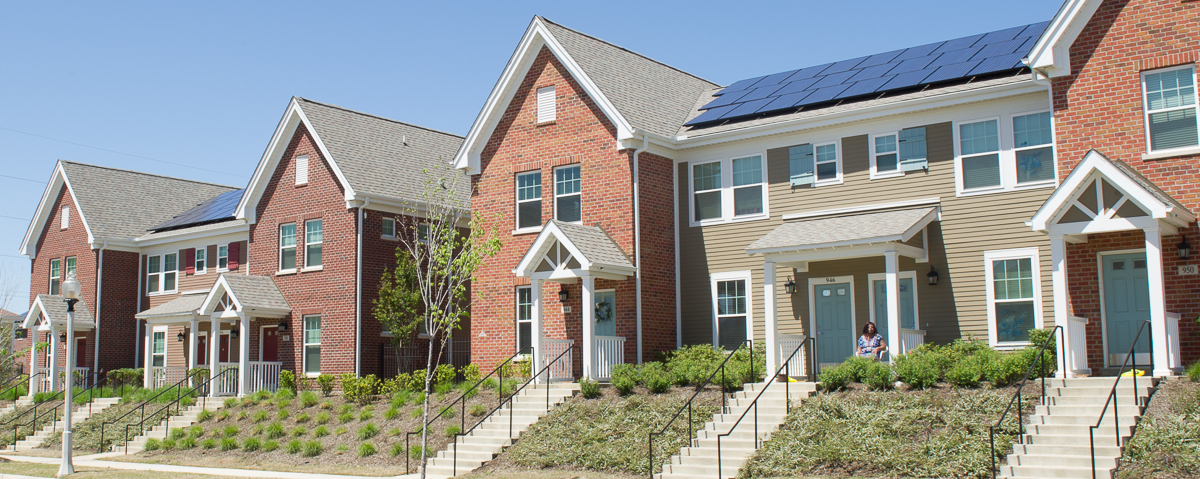Complete mortgage guide
Posted on 28th February 2022
This can be a daunting process, with lots of jargon to understand.
In this blog post, we'll explain everything you need to know about mortgages:
We'll also give you some tips on how to get started in the mortgage process. So read on for all the information you need to make informed decisions about your home purchase!
What is a mortgage?
A mortgage is a loan taken out to purchase a property. The property acts as collateral for the loan, meaning that if you can't repay it, the lender can take possession of the property.
Mortgages are typically offered by banks or building societies, and can be used to buy any type of residential property.
How does a mortgage work?
When you take out a mortgage, you agree to repay the loan over a set period of time (the ‘mortgage term'). You'll also be charged interest on the amount you borrow.
This interest is usually fixed for the first few years of the mortgage, then it will start to increase incrementally each year. The amount you pay back each month is known as the ‘mortgage repayment'.
What are the different types of mortgage?
There are lots of different types of mortgage available, each with their own benefits and drawbacks. The type of mortgage you choose will depend on your personal circumstances, such as how much money you have to put down as a deposit, and your financial goals.
Some of the most common types of mortgage are:
- Fixed rate mortgage:
A fixed rate mortgage offers peace of mind as the interest rate is set for the duration of the mortgage term. This means that your monthly repayments will stay the same, no matter what happens to the wider economy. However, you'll usually need to pay a higher interest rate for this type of mortgage.
- Tracker mortgage:
A tracker mortgage follows the Bank of England's base rate, meaning that your monthly repayments will go up and down along with interest rates. This can be a risky choice if you think interest rates might rise in the future, but it can also be a more affordable option if rates drop.
- Variable rate mortgage:
A variable rate mortgage has a fluctuating interest rate, which means that your monthly repayments could go up or down. This type of mortgage is typically more expensive than a fixed or tracker mortgage, but it does offer more flexibility.
- Offset mortgage:
An offset mortgage allows you to offset your savings against your mortgage debt, which can help you to reduce the amount of interest you pay. However, these types of mortgage are typically only available to those with a large deposit.
What is an Agreement in Principle (AIP)?
An AIP is a document that shows how much money you're likely to be approved for from a lender. It's not a guarantee that you'll be given the money, but it is an indication of how much you could borrow. This can be helpful when bidding for a property, as it shows that you're serious about purchasing it.
How do I get an Agreement in Principle?
To get an AIP, you'll need to provide your lender with some basic information about your financial situation. This could include your income, savings and outgoings. Your lender will then use this information to give you an idea of how much you could borrow.
What is a full mortgage application?
A full mortgage application is the process of formally applying for a mortgage from a lender. This usually involves providing the lender with more detailed information about your finances, as well as undergoing a credit check.
What do I need to do to get a full mortgage application?
To get a full mortgage application, you'll need to provide your lender with some basic information about your financial situation. This could include your income, savings and outgoings. Your lender will then use this information to give you an idea of how much you could borrow.
What is a basic mortgage valuation?
A basic mortgage valuation is a report that assesses the value of a property. It's usually carried out by a qualified surveyor and is used by lenders to determine how much money they're willing to lend against a property.
When does a basic mortgage valuation take place?
A basic mortgage valuation usually takes place after you've been approved for a mortgage and before you exchange contracts with the seller. It's used by lenders to determine how much money they're willing to lend against a property.
How is a basic mortgage valuation carried out?
A surveyor will visit the property and take into account a number of factors, such as the size and condition of the property. They'll then produce a report that assesses the value of the property.
What is a full mortgage valuation?
A full mortgage valuation is a more detailed assessment of a property's value. It's usually carried out by a qualified surveyor and is used by lenders to determine how much money they're willing to lend against a property.
What is the purpose of a full mortgage valuation?
A full mortgage valuation is used by lenders to determine how much money they're willing to lend against a property. It's usually carried out after you've been approved for a mortgage and before you exchange contracts with the seller.
How is a full mortgage valuation carried out?
A surveyor will visit the property and take into account a number of factors, such as the size and condition of the property. They'll then produce a report that assesses the value of the property. This report is used by lenders to determine how much money they're willing to lend against the property.
When should I get a full mortgage valuation?
A full mortgage valuation is usually carried out after you've been approved for a mortgage and before you exchange contracts with the seller. It's used by lenders to determine how much money they're willing to lend against a property.
How do I get a full mortgage valuation?
You'll need to instruct a qualified surveyor to carry out a full mortgage valuation. They'll visit the property and take into account a number of factors, such as the size and condition of the property. They'll then produce a report that assesses the value of the property.
What will a full mortgage valuation cost?
The cost of a full mortgage valuation depends on the size and location of the property. A qualified surveyor will be able to give you an estimate of the cost before they carry out the valuation.
We hope this blog post has cleared up some of the jargon around mortgages.
If you have any further questions, please don't hesitate to get in touch on 0116 3409989 or sales@thepropertyfox.co.uk
WANT TO FIND OUT MORE?
Brilliant, we will be more than happy to speak with you and see how we can help further.
Contact us on one of the methods with any queries that you may have, or use our contact form and we will be back in touch very soon!
Telephone
0116 3409989
Email
sales@thepropertyfox.co.uk
Social Media
Please fill in the form below and a member of our team will contact you shortly
Share this post:














